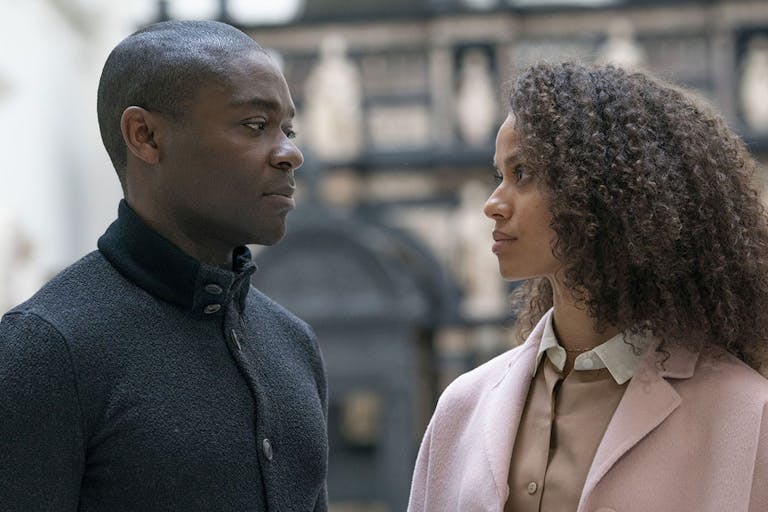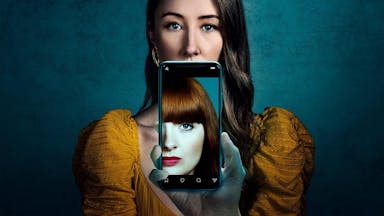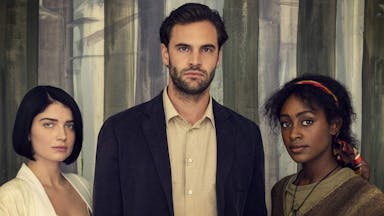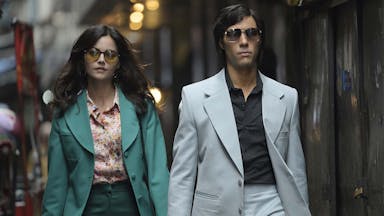The TV shows illuminating our relationship to social media

With fake news propelling itself to the mainstream in mid-2016 and over 60% of the UK’s population currently active on social media, it has become easier than ever to manufacture a truth that masks a starker or darker reality.
So it comes as no surprise that TV writers have seen the story potential in this theme and that our screens are currently bursting with stories exploring the fertile ground brought to the fore by the social media era.
In The Girl Before, a four-part thriller produced by the BBC, a grieving woman (Gugu Mbatha Raw) moves into a house equipped with constant surveillance that gathers data about whoever occupies it to “improve the user experience”. Using camerawork that slinks about with a predatory fluidity, The Girl Before revels in a sense of feeling tracked or recorded that is especially relevant the more we live our lives online.
The darker sides of social media are also shown in Chloe, the six-part British psychological thriller created by Sex Education alumnus Alice Seabright. Erin Doherty’s full-time carer and temp uses Instagram as an outlet to transcend her everyday life. Before long, she is more than just scrolling, using it as a way to move between her real self and her newly invented alter-ego ‘Sasha’ whilst ingratiating herself with the friends of the recently deceased Chloe, with whom she had a particular fascination.
Similarly a new music-based series called Mood - an adaptation of Nicôle Lecky's one-woman show Superhoe - sheds light on the seductive yet unsavoury world of influencer culture, when aspiring Sasha (played by Lecky) turns to social media to make money and becomes embroiled in a world of exploitation.
Elsewhere, British TV series like Behind Her Eyes and Stay Close - both available on Netflix - although not explicitly about social media, play, or prey upon, this notion that we have multiple selves, and the lives we create are only ever that: fragile creations that could come crashing down at any moment.
It’s not just contemporary stories that weave this thread. In Vanity Fair, a British TV series set against the backdrop of the Napoleonic Wars (produced by London-based Mammoth Screen, the team behind The Serpent, another seductive tale of hidden identity) there is an undercurrent of deception. William Thackeray may have created the character of Becky Sharp in 1848, but her story of scamming her way to the upper echelons of society feels especially pertinent in an age where we often pretend to have more than we really do.
The big and small-screen have always reflected an era’s anxieties and values, and this recent glut of shows confirms we are a society obsessed by how social media’s omnipresence in our lives can impact everything from our identity and our ability to form meaningful relationships to how we dress, eat and earn a living. What happens when you’re given the means to transcend who you are, and be whoever you want to be? Watch any of these addictive TV series to find out…






